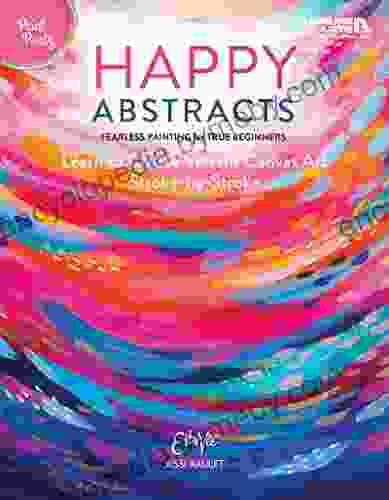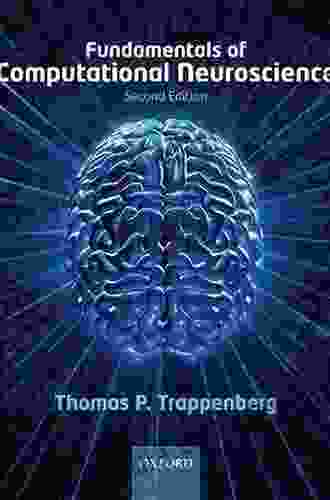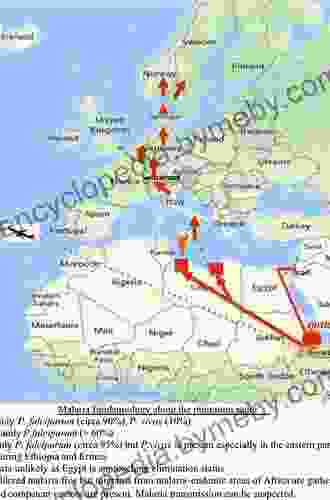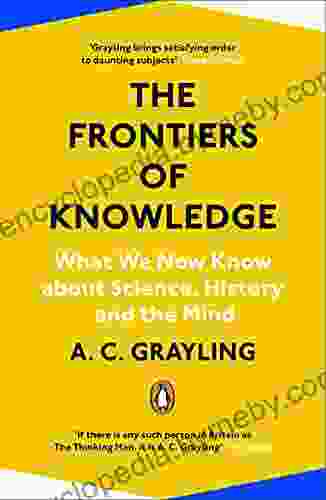Unveiling the Secrets of the Brain: Dive into the Fundamentals of Computational Neuroscience

The human brain, an intricate tapestry of billions of neurons, has long fascinated scientists, philosophers, and artists alike. Its extraordinary capabilities – from learning and memory to perception and consciousness – have driven an insatiable quest to understand its underlying mechanisms. In the realm of computational neuroscience, scientists harness the power of computers to simulate and analyze neuronal behavior, shedding unprecedented light on the brain's complexities.
What is Computational Neuroscience?
Computational neuroscience, a captivating blend of neuroscience, computer science, and mathematics, employs sophisticated computational models to unravel the intricate workings of the brain. By emulating neuronal networks and their interactions, these models mimic the electrical and chemical processes that govern brain activity. This powerful approach enables researchers to delve into the dynamics of neural circuits, simulate brain processes, and gain insights into neurobiological phenomena that would otherwise remain elusive.
4.6 out of 5
| Language | : | English |
| File size | : | 14094 KB |
| Text-to-Speech | : | Enabled |
| Screen Reader | : | Supported |
| Enhanced typesetting | : | Enabled |
| Print length | : | 418 pages |
| Lending | : | Enabled |
Key Concepts in Computational Neuroscience
The foundations of computational neuroscience rest upon several key concepts:
1. Neurons and Neural Networks: Neurons, the fundamental units of the brain, transmit electrical and chemical signals. Computational models capture their behavior, including their firing patterns, synaptic connections, and signal propagation.
2. Neural Coding: Neurons encode information through the rate, timing, and patterns of their firing. Computational neuroscience explores how these codes represent sensory stimuli, motor commands, and cognitive processes.
3. Neural Plasticity: The brain's ability to adapt and reorganize in response to experience, known as plasticity, plays a crucial role in learning and memory. Computational models simulate these dynamic changes in neural connections.
4. Computational Models: Computational models, ranging from simple neural circuits to large-scale brain simulations, allow researchers to investigate different facets of brain function and test hypotheses.
Applications of Computational Neuroscience
Beyond its theoretical significance, computational neuroscience has far-reaching applications, including:
1. Brain DisFree Downloads: By simulating pathological brain activity, computational models can provide insights into the underlying mechanisms of neurological and psychiatric disFree Downloads, aiding in diagnosis and treatment.
2. Neuroprosthetics: Computational models guide the development of neuroprosthetics that restore lost brain function, enabling paralyzed individuals to regain control of their limbs or mute people to regain the ability to speak.
3. Artificial Intelligence: Computational neuroscience inspires the design of artificial intelligence systems that mimic human cognitive abilities, such as pattern recognition, speech comprehension, and decision-making.
4. Education and Outreach: Interactive computational models can enhance science education, making complex neuroscience concepts accessible to students and the public.
Computational neuroscience is an ever-evolving field that continues to push the boundaries of understanding the brain. By harnessing the power of computation, scientists gain invaluable insights into the intricate workings of this extraordinary organ, its role in human cognition and behavior, and its potential for reshaping our future.
Further Reading
For those seeking to delve deeper into the fascinating world of computational neuroscience, the following resources provide a rich source of knowledge:
1. Fundamentals of Computational Neuroscience by Thomas Trappenberg
2. Computational Neuroscience: A Primer by Erik De Schutter
3. Computational Neuroscience: A Comprehensive Guide by Edward Izhikevich
4. The Computational Brain: An to Computational Neuroscience by Michael Bear, Barry Connors, and Michael Paradiso
5. The Cognitive Neuroscience Revolution by Christopher Frith and Uta Frith
These authoritative works offer a comprehensive foundation in computational neuroscience, covering its principles, methods, applications, and the latest advancements in the field.
4.6 out of 5
| Language | : | English |
| File size | : | 14094 KB |
| Text-to-Speech | : | Enabled |
| Screen Reader | : | Supported |
| Enhanced typesetting | : | Enabled |
| Print length | : | 418 pages |
| Lending | : | Enabled |
Do you want to contribute by writing guest posts on this blog?
Please contact us and send us a resume of previous articles that you have written.
 Book
Book Novel
Novel Page
Page Chapter
Chapter Text
Text Story
Story Genre
Genre Reader
Reader Library
Library Paperback
Paperback E-book
E-book Magazine
Magazine Newspaper
Newspaper Paragraph
Paragraph Sentence
Sentence Bookmark
Bookmark Shelf
Shelf Glossary
Glossary Bibliography
Bibliography Foreword
Foreword Preface
Preface Synopsis
Synopsis Annotation
Annotation Footnote
Footnote Manuscript
Manuscript Scroll
Scroll Codex
Codex Tome
Tome Bestseller
Bestseller Classics
Classics Library card
Library card Narrative
Narrative Biography
Biography Autobiography
Autobiography Memoir
Memoir Reference
Reference Encyclopedia
Encyclopedia Leon Edward
Leon Edward Abhijit V Banerjee
Abhijit V Banerjee Diana Hollingsworth Gessler
Diana Hollingsworth Gessler Luca Dotti
Luca Dotti Sue Shephard
Sue Shephard Shamim Sarif
Shamim Sarif 10th Edition Kindle Edition
10th Edition Kindle Edition A V Davina
A V Davina Carole Jackson
Carole Jackson 1st Edition
1st Edition Aaron Crash
Aaron Crash Laura Bradbury
Laura Bradbury Andrew Nikiforuk
Andrew Nikiforuk Abby Lee Miller
Abby Lee Miller A P J Abdul Kalam
A P J Abdul Kalam Aarti Namdev Shahani
Aarti Namdev Shahani Shan Ling Li
Shan Ling Li 24th Edition Kindle Edition
24th Edition Kindle Edition Aaron Pribble
Aaron Pribble Larry Clinton
Larry Clinton
Light bulbAdvertise smarter! Our strategic ad space ensures maximum exposure. Reserve your spot today!
 Xavier BellFollow ·19.4k
Xavier BellFollow ·19.4k Elias MitchellFollow ·15.7k
Elias MitchellFollow ·15.7k Russell MitchellFollow ·18.7k
Russell MitchellFollow ·18.7k Anthony BurgessFollow ·6.2k
Anthony BurgessFollow ·6.2k Mark MitchellFollow ·5.3k
Mark MitchellFollow ·5.3k Adam HayesFollow ·8.4k
Adam HayesFollow ·8.4k Yasunari KawabataFollow ·11.4k
Yasunari KawabataFollow ·11.4k Will WardFollow ·18.5k
Will WardFollow ·18.5k

 Timothy Ward
Timothy WardFearless Painting for True Beginners: Learn to Create...
Unlock the Joy of...

 Fernando Pessoa
Fernando PessoaProven 12-Step Program for Financial Peace of Mind:...
Are you struggling with...

 Chinua Achebe
Chinua AchebeLayers Colors Desire: Layers Colors Thoughts Mystery
A Literary Labyrinth...

 Fernando Bell
Fernando BellUnearth Hidden Treasures: Journey Through "Secondhand...
Prepare to embark on an extraordinary...

 Caleb Carter
Caleb CarterSymbolic Messages Garage Sale Mysteries: Unveiling the...
Welcome to the extraordinary world of the...

 Nikolai Gogol
Nikolai GogolTravels in the Billion Dollar Trash Trade: Uncovering the...
Ỡ In his...
4.6 out of 5
| Language | : | English |
| File size | : | 14094 KB |
| Text-to-Speech | : | Enabled |
| Screen Reader | : | Supported |
| Enhanced typesetting | : | Enabled |
| Print length | : | 418 pages |
| Lending | : | Enabled |












